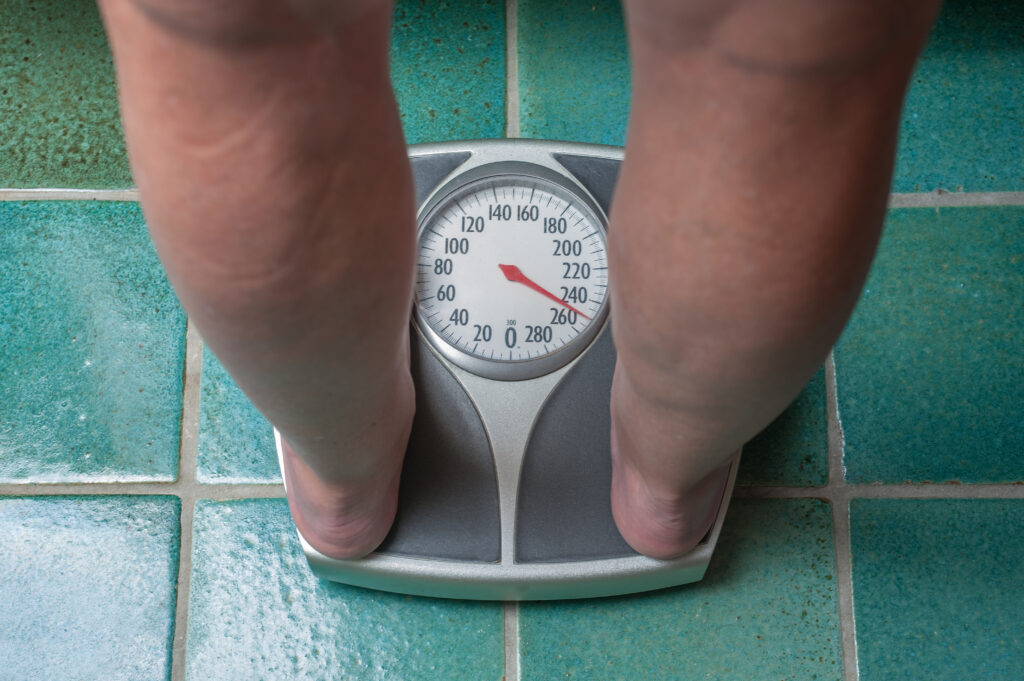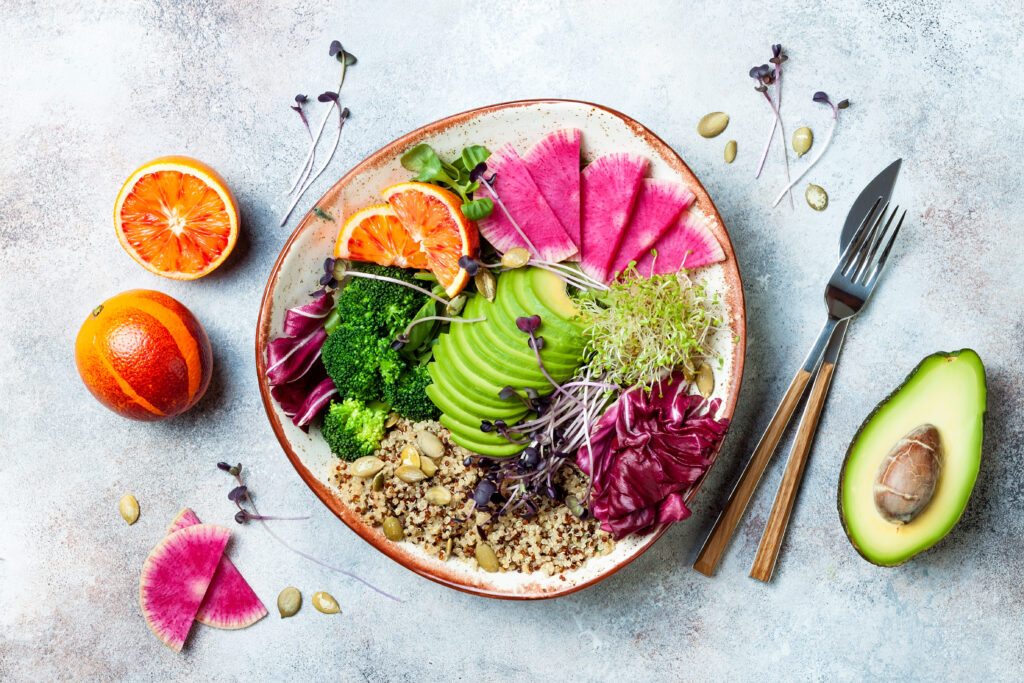
One of the big lessons of the year has been realizing the importance our health and how important it is to safeguard it.
We’ve heard a lot about preventing the spread of viruses by wearing a mask, washing your hands, and not touching your face, but one thing we haven’t heard a lot about is strengthening your immune system.
This is our body’s, natural defense, so it only makes sense that we should be working to strengthen it.
What role may nutrition and fitness play in the prevention and treatment of COVID-19?
Let’s examine how you can keep your immune system healthy through the addition and subtraction of certain foods or beverages as well as fitness.
What is COVID-19?
COVID-19 is caused by a coronavirus similar to that that caused severe acute respiratory syndrome (SARS) back in 2003.

According to the World Health Organization (WHO), 8,098 people worldwide became sick with SARS during the 2003 outbreak. Of these, 774 died.
This first SARS coronavirus is now referred to as SARS-CoV-1.
Both SARS coronaviruses appear to have originated in bats found in China.
SARS-CoV-1 had almost no impact on those of us in the U.S. Perhaps this is because it was far less contagious this new species of coronavirus (SARS-CoV-2) that causes COVID-19.
We know SARS-CoV-2 has already infected millions of Americans, and as of mid-July, more than 170,000 Americans have died with COVID-19.
The number of new cases being diagnosed in the U.S. is surging again, with 60,000 new cases diagnosed in a single day in July.
Dr. Anthony Fauci recently predicted we could see 100,000 new cases of SARS-CoV-2 being diagnosed daily.
In a recent JAMA review article, the most striking concept, from a nutrition perspective, is this statement:
“The most common comorbidities in hospitalized patients include hypertension (present in 48%-57% of patients), diabetes (17%-34%), cardiovascular disease (21%-28%), chronic pulmonary disease (4%-10%), chronic kidney disease (3%-13%), malignancy (6%-8%), and chronic liver disease (<5%)” (3).
Update on Risk Factors
The Centers for Disease Control and Prevention (CDC) recently updated and expanded the list of who is at increased risk of getting severely ill from COVID-19.

Risk increases with age statement - updated
- The CDC previously said that people over age 65 are at greater risk for severe illness from COVID-19. This statement has been revised to reflect that adults under age 65 may also be at higher risk.
- The CDC now states that among adults, the risk increases steadily with age. In other words, those in their 50s are at higher risk than people in their 40s. And, people in their 60s or 70s are at higher risk than those in their 50s.
- People age 85 and older remain at the most significant risk for severe illness due to COVID-19.
Underlying Medical Conditions - Updated
After reviewing evidence, the CDC revised its list of underlying medical conditions that put at increased risk for severe COVID-19 illness, no matter their age.
CDC publishes two lists for the public:
- Medical conditions that do increase the risk of severe illness and medical conditions that might increase risk.
- There’s also a table (if you’re interested) that separates underlying conditions into categories by level of evidence:
- strong/most consistent evidence
- mixed evidence
- limited evidence
Having additional underlying medical conditions increases the risk of severe COVID-19 illness even more.
Here are updates of underlying medical conditions that do increase the risk for severe illness:
Changes from the previous list:
- Obesity (BMI of 30 or higher) – previously listed as “severe obesity (BMI of 40 or higher).”
- Chronic kidney disease – previously listed as “chronic kidney disease requiring dialysis.”
- Severe heart conditions, such as coronary artery disease, heart failure, or cardiomyopathies – previously listed as “serious heart conditions.”
Added to the list: Immunocompromised state from solid organ transplant
No change:
- Sickle cell disease
- Type 2 diabetes
- COPD
Obesity & COVID-19

Obesity, as opposed to severe obesity, is now considered an underlying health condition that increases the risk for severe COVID-19 illness.
This consideration means that more Americans, then previously thought, are in danger of becoming very sick if they get COVID-19.
The updates to the list of underlying conditions that may increase the risk for serious illness:
Added to the list:
- Cerebrovascular disease
- Hypertension
- Pregnancy
No Change:
- Asthma
- Cystic fibrosis
- Immunocompromised state from blood or bone marrow transplant, immune deficiencies, HIV, use of corticosteroids, or use of other immune weakening medicines
- Liver disease
- Neurologic conditions, such as dementia
- Pulmonary fibrosis
- Smoking
- Thalassemia
- Type 1 diabetes
Pregnancy & COVID-19
Information about COVID-19 and pregnancy has been and continues to be limited.
That said, the CDC points to data from a June 26 Morbidity and Mortality Weekly Report demonstrating that pregnant women with COVID-19 were more likely to be hospitalized and to require a ventilator when compared to nonpregnant women.
How May Diet Reduce the Risk of Death from COVID-19?
Dr. Fauci’s Congressional testimony emphasized that people with these diet and lifestyle-caused illnesses (including being overweight and having hypertension, diabetes, and failing kidneys) dramatically increases one’s risk of being hospitalized and dying if infected with SARS-CoV-2.
A calorie-dense diet low in fiber and many calories coming from beverages promotes increased inflammation, insulin resistance, weight gain, and type 2 diabetes development.
A diet high in sodium promotes hypertension, especially in overweight people with insulin resistance. Hypertension develops in more than 90% of Americans by the time they are in their 70s or 80s.
A typical modern Western diet and central adiposity are now the #1 cause of fatty liver disease associated with more severe disease in patients with COVID-19.
And diabetes and hypertension are the two most significant risk factors leading to renal failure.
Asthma is also promoted by obesity and a diet high in salt.
People with asthma are also at a heightened risk of dying from COVID-19.
People with cancer are also at elevated risk of dying with COVID-19. Research suggests that up to 70% of all cancer deaths are associated with a typical modern Western-style diet.
Most of the deaths caused by a SARS-CoV-2 infection result in markedly increased inflammation and thrombosis (or from blood clots).
Weight gain and diets higher in saturated fat have long been known to increase the blood’s inflammatory substances.
Elevated inflammatory markers (i.e., C-reactive protein, ferritin, tumor necrosis factor-?, IL-1, IL-6) appear to promote the severe acute inflammatory response in the lungs is described as a “cytokine storm” may be more likely in obese people consuming a typical saturated-fat-rich standard American diet.
It has long been known that diets higher in fat elevate clotting factor VII, promoting blood clot formation.
Diets high in saturated fat and low in omega-3 fatty acids elevate blood thromboxane levels, leading to more blood clots.
Put Your Plants On!

Are you getting enough fiber?
The USDA recommends 38 grams of fiber per day for men and 25 grams per day for women until age 50.
After age 50, these numbers drop slightly to 30 grams daily for men and 21 grams per day for women.
Eating more fiber is beneficial to your health.
A recent examination of nearly 250 research studies proposed that individuals with a diet containing more vegetables, fruits, and whole grains may have a lower risk of dying due to cancer and heart disease — two chronic illnesses that raise the risk of contracting COVID-19.
People with the highest fiber intakes cut their risk of death from cardiac disease, stroke, type 2 diabetes, and colon cancer by 16 to 24%, compared to individuals with lower fiber intakes.
One big reason why fiber is so vital to your immune system comes down to 2 words:
GUT HEALTH
High-fiber foods fermented in the gut produce short-chain fatty acids that help modulate the immune system.
Short-chain fatty acids increase nutrient absorption, and reduce transit time in the colon, freeing the body of harmful byproducts and toxins.
The diversity of gut microbiome influences the risk of obesity.
A recent study in the U.K. of female twins discovered that high fiber intake and high diversity in the gut microbiome improved energy metabolism and correlated with lower term weight gain, aside from calorie intake and other variables.
Move More!

Another way to protect your immune system, naturally, is through regular purposeful exercise.
Multiple studies have demonstrated the benefits of physical activity on immune function, including an increase in T cell function, improved uptake of nutrients, enhanced immune regulation, enhancements in bone and metabolic health, as well as improving sleep.
The Department of Health and Human Services and the 2018 Physical Activity Guidelines for Americans, 2nd edition recommend 150 minutes of aerobic physical activity and two days of strength training per week.
The recommendations can be accomplished with 30-minute bouts of exercise, five days per week, or multiple episodes of activity to meet the suggested goal.
While many gyms and recreation centers are still closed during this pandemic, try taking a walk, riding a bike, or even playing outside with your kids!
You can also try streaming in-home workouts that don’t require equipment!
Exercise and Your Immune System
Movement, can keep your body’s lymphatic system moving.
And, the lymphatic system is a huge part of your immune system, keeping all your disease fighting white blood cells and antibodies flowing through your body and helping rid your body of waste.
Being physically active, can flush invading bacteria out of your respiratory system, cutting your risk of getting sick to begin with!
Also, the slight increase in body temperature due to exercise might actually stop bacteria from growing helping your body fight infection.
Of course, exercise can also help reduce stress and help you sleep better too.
The Journal of Sport and Health Science published a few studies into the link between immune system and exercise.
They rounded up relevant studies and analyzed all the results to come up with some conclusions:
First, your immune system responds pretty quickly to exercise.
Researchers discovered that if you do moderate to high intensity exercise in sessions lasting an hour, your immune system gets an immediate short-term boost, but you can get even more benefit from regular, consistent exercise.
Consistent exercise will not only help your immune system, but it will also help your metabolic health and regular workouts are also linked with a lower risk of catching or dying from the flu or pneumonia.
But moderation is a good thing. It is possible to over stress your body and that will give your immune system a hit.
That can happen if you work out for too hard or too long like an athlete preparing for a major sporting event and not resting enough.
If you have a ton of stress going on in your life, things like not eating enough, not feeding your body healthy foods, not getting enough sleep, having a lot of general life stress and then beating yourself up with your workouts.
All of that can set you up to get sick, so exercise that lasts 30 to 60 minutes a day definitely helps rev up your immune system and that can help your body fight off illness.
The American College of Sports Medicine put forth a recommendation that it’s essential for people that are both in normal health and with chronic conditions to activate, maintain, and advance their physical activity for 30 minutes to 60 minutes on most days of the week.
They also said that this might not be the time to train for peak performance.
Go To Bed!

When work hours are less structured, it can be easy to get in the habit of staying up later or ignoring sleep cues.
It can be easy to get sucked into binge watching Netflix or YouTube!
But, getting adequate sleep provides your body and brain time to rejuvenate and helps your immune system by releasing cytokines, mobilizing leukocytes, and regulating T cells.
Poor sleep and insomnia have been linked to an increased risk for viruses, including colds and flu.
A 2015 study found that those sleeping fewer than 6 hours per night augmented their risk of developing a cold following exposure to a virus.
Limited sleep is also related to elevated blood sugar, high blood pressure, cholesterol, and increased risk for depression as well as the potential for memory loss.
Most experts suggest a minimum of 7 to 8 hours of solid sleep for the most significant health benefit.
Get Some Sun!

The best way to get Vitamin D is from the sun. So, take your exercise outside and kill two birds with one stone!
While fortified dairy products often provide vitamin D, have you looked on a yogurt or cheese label lately?
You’ll notice that most varieties these days don’t contain much, if any, vitamin D anymore!
Getting enough vitamin D helps your immune system in a few ways.
The fat-soluble vitamin receptor of vitamin D is expressed on immune cells, including B and T cells, and antigen-presenting cells.
Vitamin D deficiency is linked with autoimmune diseases such as multiple sclerosis, type 1 diabetes, and systemic lupus.
A deficiency of Vitamin D has also been implicated with an increased risk of infection.
Back Off Booze!

In times of stress, it’s easy to turn to the bottle for anxiety relief.
But alcohol can inhibit your body’s ability to defend itself.
Research indicates that alcohol negatively impacts the gut microbiome and increases the chance of gut permeability — where harmful bacteria can roam freely in the blood.
Besides, alcohol affects the number and function of macrophages, T cells, and C cells, the 3 major players in the immune system.
So, if you consume alcohol, stick to moderation – women should limit to no more than one drink per day, and men should limit it to no more than two drinks per day.
Excessive alcohol intake is linked with cancer, liver disease, and a host of other issues in both men and women.
Can Supplements Prevent or Treat COVID-19?
Unfortunately, marketing can thrive on fear, and there is plenty of that regarding COVID-19.
Not surprisingly, the list of companies promoting various dietary and herbal remedies for people worried about COVID-19 is snowballing.
In fact, here is a list of companies making dubious claims that their food supplements and herbal products can boost immunity and help prevent and treat COVID-19.
There are no controlled clinical trials exhibiting zinc, vitamin D, fish oils, or intravenous vitamin C that are of any benefit for preventing or treating COVID-19.
Of course, that’s not to say that you shouldn’t take any supplements as additional insurance. Discuss what may be right for you with your doctor or pharmacist.
Tips:
- Choose high-fiber foods, including fresh, frozen, or dried organic fruit, fresh or frozen organic vegetables, and whole grains.
- Add organic beans to your soups, salads, and stews.
- Walk, ride a bike, even dance in front of your T.V. Target 30 minutes, or more, at least 5 days a week.
- Hit the sack! Keep a consistent sleep and wake cycle. Aim for 7 to 8 hours of quality sleep per night.
- Consider a vitamin D supplement. A supplement of 1000 to 2000 I.U.s (international units) is safe for most people. Check with your doctor or pharmacist to find out what’s right for you.
- Limit alcohol. An occasional cocktail can be ok but don’t use alcohol to cope. Stock up on seltzer water, green tea, or flavored coffee if you find yourself grabbing a wine glass too often.
Conclusion
It appears likely that one reason many Americans are at elevated risk form catching SARS-CoV-2 and experiencing more severe disease or dying from COVID-19 is because of the typical modern diet and lifestyle.
Adopting a healthier diet lower in saturated fat, salt, and cholesterol and higher in whole fruits, vegetables, and whole grains may help reduce your risk of experiencing more severe disease or even death from COVID-19.
A healthy diet includes many micronutrients such as zinc, vitamin D, and vitamin C, which can assist your immune system.
Follow a healthy diet and lifestyle may also prevent and even possibly reverse many of the co-morbid illnesses that markedly increase the risk of more severe outcomes should you catch this all-too-common new coronavirus.
At least until there is an effective vaccine, prevention will require physical distancing and wearing a mask — especially in crowded indoor environments for older people with a severe co-morbid illness.
Those who work with and have older relatives at high risk from catching SARS-CoV-2 will want to avoid interacting with high-risk individuals, especially if they have a fever, dry cough, shortness of breath, and have reason to believe they may have a SARS-CoV-2 infection.

